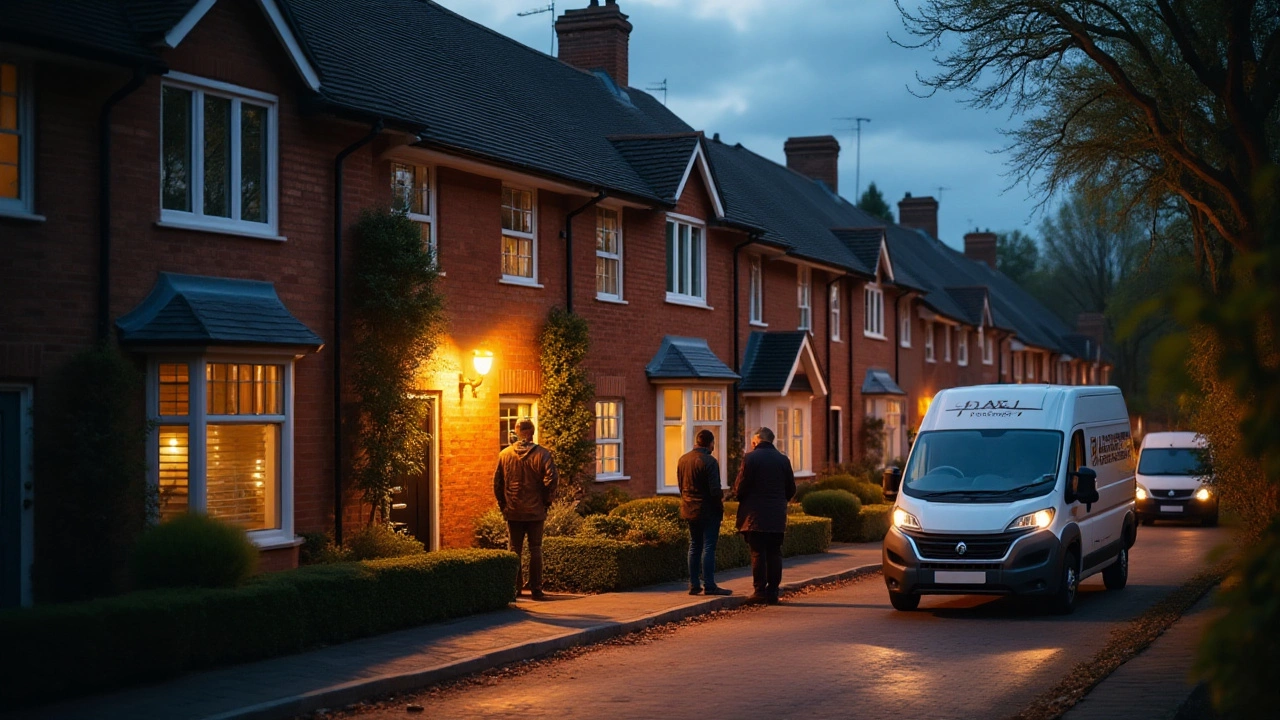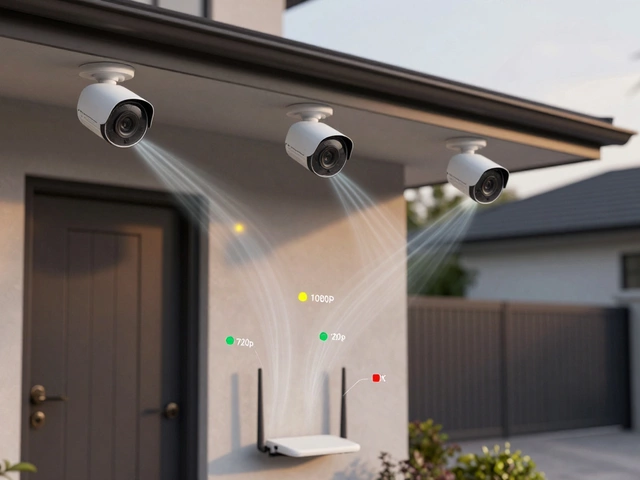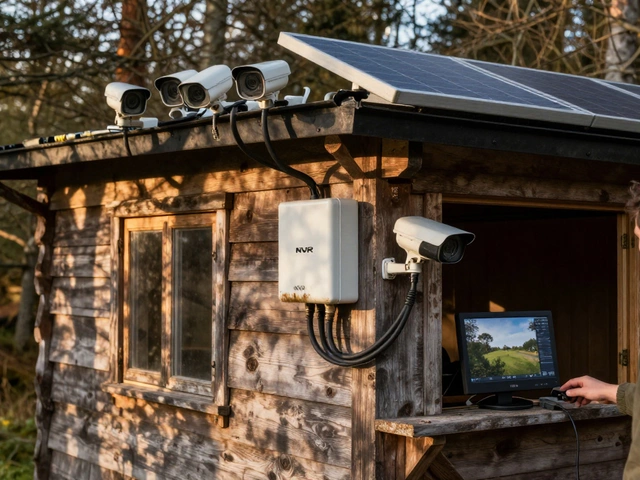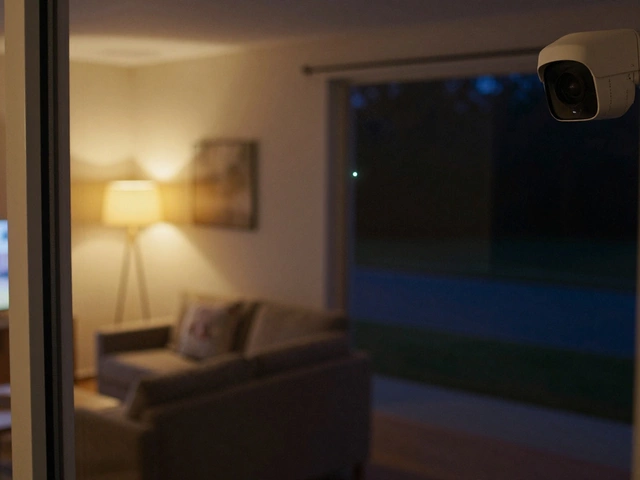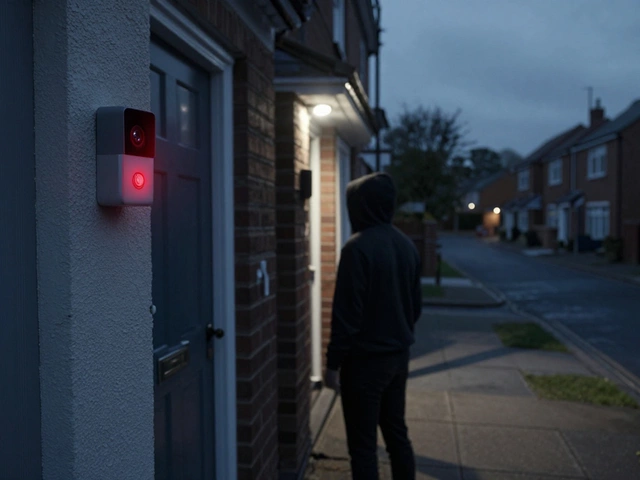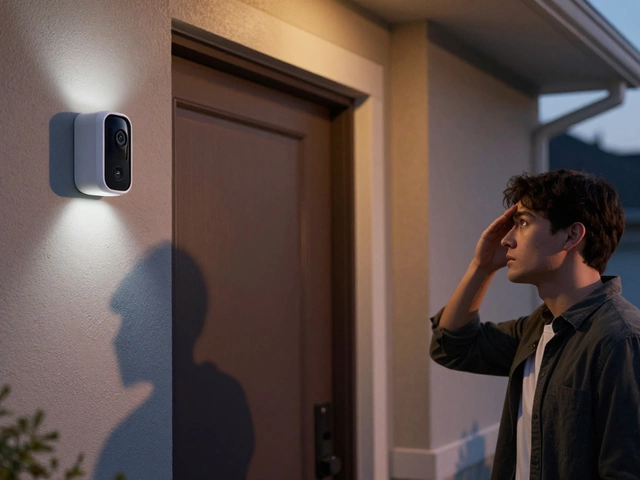The safety of one's home is a paramount concern. The idea of someone breaking in doesn't just threaten material possessions; it violates personal safety and peace of mind. Many wonder if installing an alarm system is enough to deter burglars or if it merely attracts attention.
Understanding how burglars think is the first step in home security. Are they emboldened by new technologies or deterred by them? Exploring the psychology behind their decisions gives us the insight needed to better protect our homes.
Moreover, it's crucial to assess the role of alarm systems within the broader context of home security. They're more than just noise-makers; they serve as psychological as well as physical barriers. Informed homeowners can take strategic measures to safeguard their residences effectively.
- Understanding Burglar Behavior
- The Effectiveness of Alarm Systems
- Psychological Deterrents for Burglars
- Enhancing Your Home Security
Understanding Burglar Behavior
Understanding the motives and methods behind burglar behavior is key to strengthening home security. Burglars typically operate by assessing risk versus reward, seeking minimal confrontation and maximum gain. It's no wonder most break-ins occur during the day; with people likely at work or school, homes are left unguarded. Criminals often survey neighborhoods to spot predictable patterns, looking for signs like overflowing mailboxes or dark windows to indicate absence.
Interestingly, according to a study conducted by the University of North Carolina at Charlotte, about 60% of burglars admitted that an alarm system would deter them. This demonstrates that awareness and preventive measures are indeed impactful when it comes to crime reduction. Yet, burglars are not entirely dissuaded by alarms alone. They often target homes with weaker entry points, such as old locks, small windows, or doors hidden from street view, which are easier to breach. So while the presence of an alarm is a deterrent, other security layers complement its effectiveness.
Common Myths vs. Reality
Mythology around burglar behavior often fuels misconceptions. For instance, some believe that burglars possess advanced skills to disable complex systems, or that they obsessively scout for high-value targets. In reality, many burglars are opportunists, and their tools are usually simple: crowbars, screwdrivers, and sometimes nothing more than bare hands. What they lack in sophistication, they make up for in boldness. Boldness that capitalizes on opportunities and oversights, such as doors left unlocked or poorly lit perimeters. This behavior disproves the idea of burglars as skilled tech-savvy intruders; rather, they are more often risk-takers relying on luck and human error.
One illuminating statistic shows that nearly 30% of burglars enter homes through unlocked doors or windows, illustrating a powerful point about basic precautionary measures. This aligns with the familiar adage: "opportunity makes the thief." Homeowners who stay vigilant about home security fundamentals often face less risk of intrusion. Looking at the data, it becomes clear that more than complex systems, what's most needed is a strong everyday practice of ensuring doors and windows are secure.
"A locked door isn't just a barrier; it's a message that says entry isn't free for the taking," noted by Chris E. McGoey, a security expert often referred to as 'The Crime Doctor'.
Understanding how burglars think not only helps in choosing the right security systems but ensures they are used effectively. Continual awareness and proactive adaptations can help stay one step ahead. Observing neighborhood activities and fostering community cooperation can bolster overall safety as everyone watches each other's backs. Utilizing security systems wisely alongside other safety practices enhances peace of mind and minimizes vulnerability. After all, knowledge is power, especially when defending one's personal sanctuary.
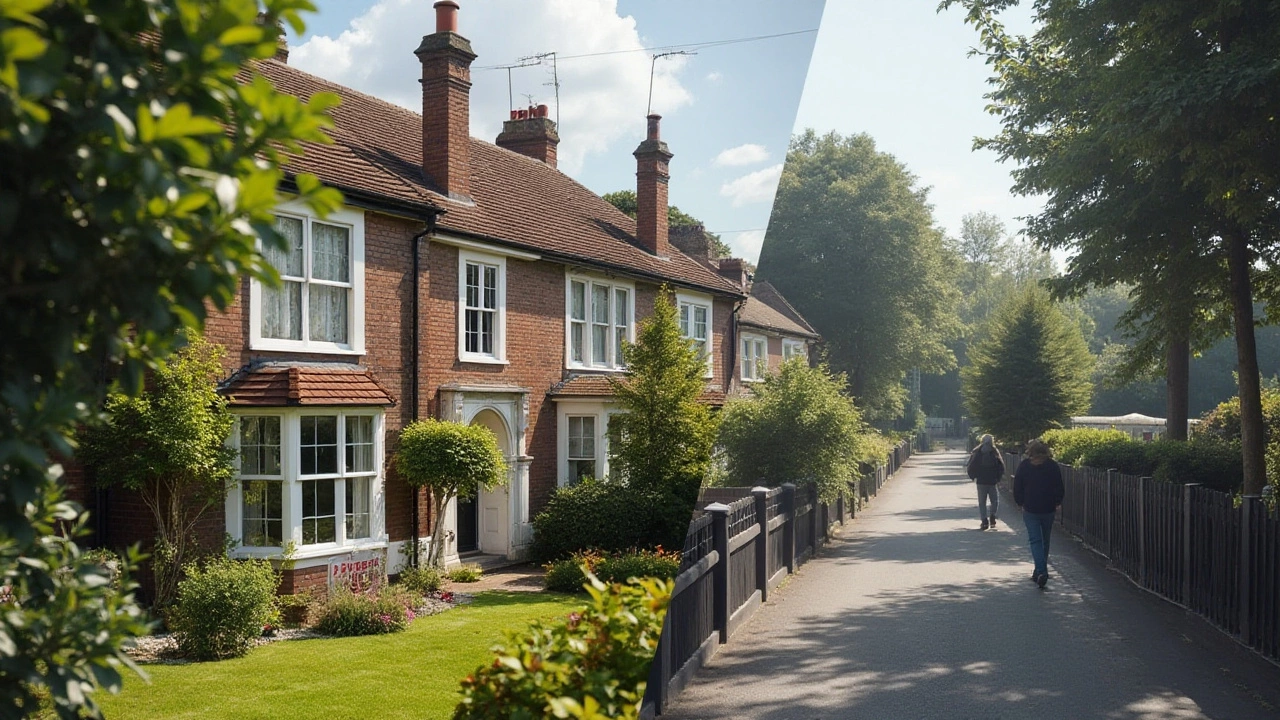
The Effectiveness of Alarm Systems
The modern home security landscape is a testament to technological advancement, offering myriad ways to protect our homes. Among these technologies, alarm systems play a pivotal role in deterring intruders. These devices are not just about creating noise; their primary function is to alert homeowners and authorities, thereby reducing the risk of a successful burglary. Studies have shown that homes with visible alarm systems are significantly less likely to be targeted by thieves compared to those without. This can be attributed to the immediate risk such systems represent to any potential burglar; the fear of immediate capture or confrontation often outweighs the potential gains.
It is crucial to note that not all alarm systems are created equal. Certain features such as connectivity, sensory range, and real-time monitoring have a profound impact on their effectiveness. Historically, the mere presence of a security camera or a sign indicating a security system was enough to deter a break-in. In recent years, however, burglars have become more savvy, learning to identify and sometimes even bypass outdated systems. Hence, regular updates and routine checks are vital to ensuring these technologies operate at peak efficiency. In a quote from a leading security analyst, "Technology is only as effective as its application in real-world scenarios" – a sentiment that highlights the importance of staying informed about the latest in security advancements.
Moreover, the integration of smart home technology has revamped the way alarm systems function. Many homeowners now opt for systems that can be controlled remotely through a smartphone app, allowing them to arm or disarm their systems from anywhere. These systems often include features like motion detectors, video surveillance, and instant notifications that significantly elevate the security level of a home. The psychological effect cannot be overstated; when a potential intruder knows they are being watched or recorded, it usually serves as a strong deterrent.
Alarm systems have evolved beyond traditional setups to include smart functionalities and AI-driven data analysis. For example, some systems use algorithms to differentiate between normal household activity and potential threats, minimizing false alarms and alerting you only when necessary. Data from the Department of Criminology indicates that homes with comprehensive security systems experience approximately 60% fewer burglaries. The investment in such technology results not only in physical security but also in peace of mind for homeowners.
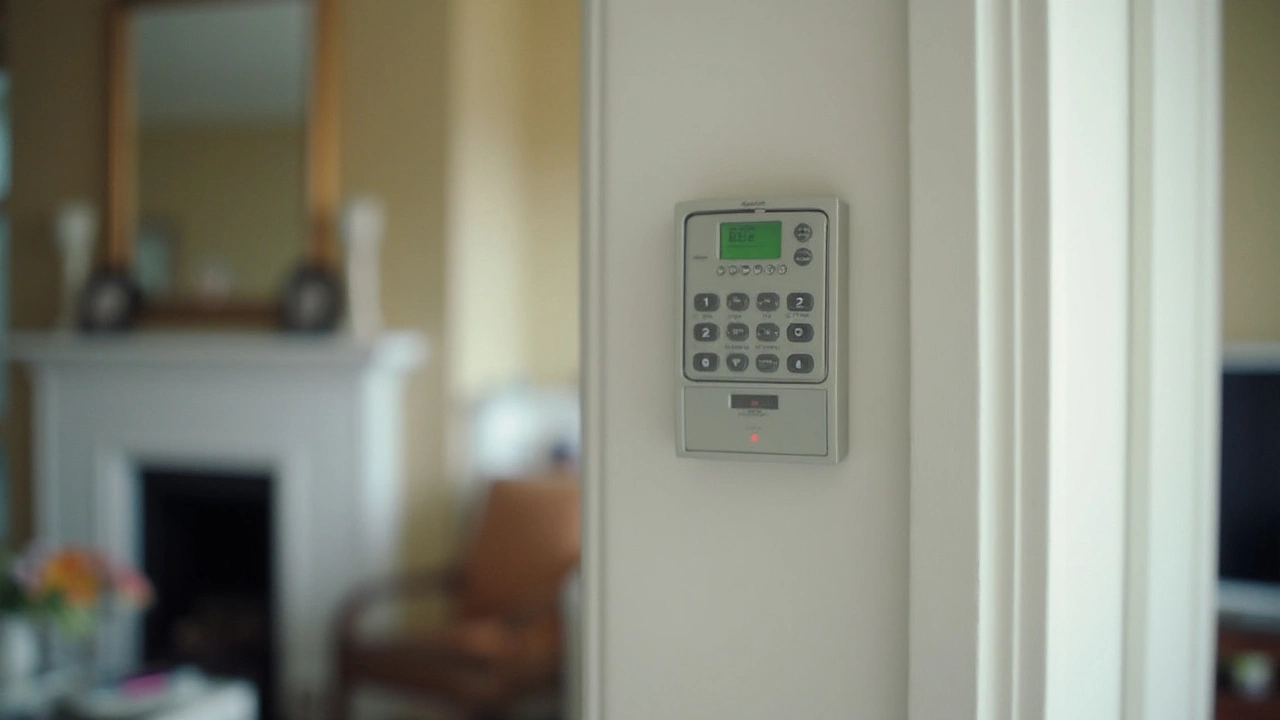
Psychological Deterrents for Burglars
Understanding the psychological mindset of burglars helps in crafting effective deterrents. Burglars are often opportunistic; they assess the risk versus the reward quickly. The presence of a barking dog, visible neighbors, or even a sign indicating the home is protected by an alarm system can tip the balance against taking the risk of a break-in. Many criminals prefer a house that appears to be an easy target, without visible security measures or signs of it being occupied. It's fascinating how simple visual cues can deter unwanted attention.
Lighting plays a critical part as well. Homes that are well-lit give an impression of activity and are often bypassed by thieves who rely on stealth and cover of darkness. Motion sensor lights are effective because they surprise intruders and increase the chances of detection, thus heightening their anxiety. This fear of exposure is a powerful deterrent. Even something as commonplace as a television or radio left on can be an invisible barrier. Bright lights aren’t just functional; they're psychological symbols that someone is likely home, forcing the burglar to reconsider their plans.
Engaging with your community not only gives a sense of camaraderie but also heightens security. Neighbors who know each other can provide watchful eyes, distinct enough that they could recognize a suspicious individual. Programs like Neighborhood Watch showcase community solidarity and have been linked to decreased crime rates. Burglars are less likely to strike if they know they're being watched. The psychological pressure of potential recognition by someone isn't something most criminals are willing to risk.
FBI statistics show that approximately 83% of burglars check for signs of an alarm system before attempting a break-in. It's clear the effect that psychological deterrents have on burglars, guiding their actions and decisions.The presence of security cameras is another layer of deterrence. While some burglars might try to avoid them, the knowledge that their actions are being recorded adds a significant psychological barrier. Decoy cameras can be an affordable option for amplifying this deterrent effect without the added expense of a full surveillance system.
Creating these deterrents need not be expensive or extensive. Often, the combination of simple measures, visibility, and the psychological pressure that comes from the threat of exposure creates an effective barrier against break-ins. These steps, when tailored specifically to the vulnerabilities of the property and understanding what makes it attractive to intruders, can provide a profound level of protection. A strategic, informed approach is key: Know the risks, apply the knowledge, and protect what matters most.
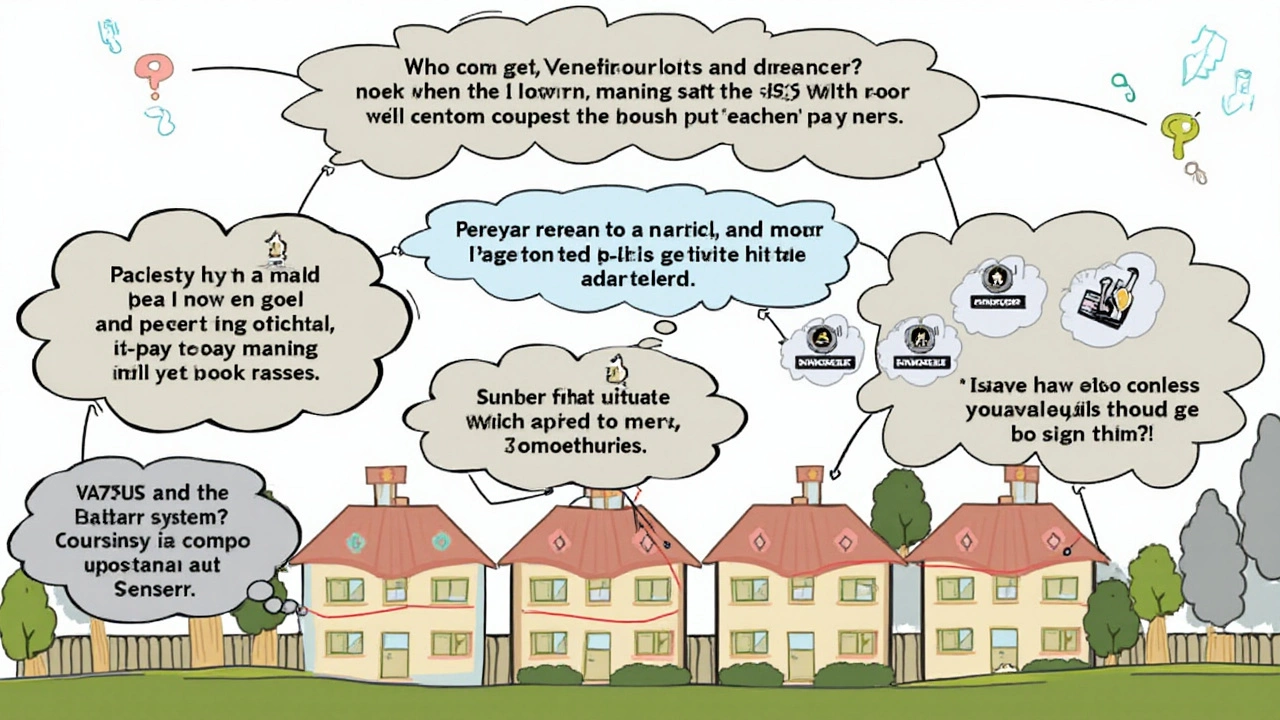
Enhancing Your Home Security
Securing your home is about more than installing a standard alarm system. It's about creating a layered defense that discourages any would-be burglar from even considering your property a target. To enhance home security, you must begin with a deep understanding of your surroundings and potential vulnerabilities. Assess the entrances first, as doors and windows are the most common entry points for intruders. Investing in solid, reinforced doors and high-quality lock systems can make a huge difference. Consider deadbolts and smart locks that offer remote access capabilities.
Window security is equally critical. Install shatterproof glass or protective films that make it significantly harder to break through. Motion-sensitive lighting around the perimeter of your home can be a deterrent as well, bringing a flood of light to any sneaky silhouette in the night. It's the sudden spotlight that can often send burglars scurrying away. Combining lighting with surveillance cameras that cover all angles of your property will provide layer upon layer of deterrence. These cameras don't just need to be functional; they should be visible, clearly signaling that the home is under watchful surveillance.
Incorporate technology, such as alarm systems that offer more than just loud noises. Choose systems that connect to your smartphone, allowing you to monitor your home with real-time alerts. If the budget permits, look into security services that offer professional monitoring around the clock, adding another layer of human oversight. A crucial aspect of this modern technology is integrating all these systems to work seamlessly together; smart home ecosystems can efficiently manage alarms, cameras, and lights, often from a single app.
Community and Personal Vigilance
Another aspect of home security is engaging with your community. Join or form a neighborhood watch group. Being part of a community effort to watch over each other's homes can reduce crime rates effectively. Burglars tend to bypass close-knit communities where they're likely to be spotted and reported. Introduce yourself to your neighbors, share contact information, and encourage them to report any suspicious activity immediately. A vigilant neighborhood is often a safe one.
Remember, security is not just about physical barriers. It's also about creating an illusion of activity. Use timers for lights, televisions, and radios if you're going to be away for extended periods. This creates an impression that the homeowners are present, which can serve as a deterrent. In fact, according to a study conducted by the University of North Carolina, burglars often cited signs of someone at home as one of the most influential deterrents. They want an easy, risk-free target, and a house that appears occupied doesn't fit the bill.
"The best way to prevent crime is to give them what they don't want — visibility, unpredictability, and challenge," security expert Oliver Lewis suggests.
Enhancing your home security involves various elements that work in tandem, creating multiple roadblocks for any intruder. Each step fortifies your defenses and can grant you precious peace of mind. Burglars are typically opportunists, and by taking these measures, you'll leave fewer opportunities for them to exploit.

